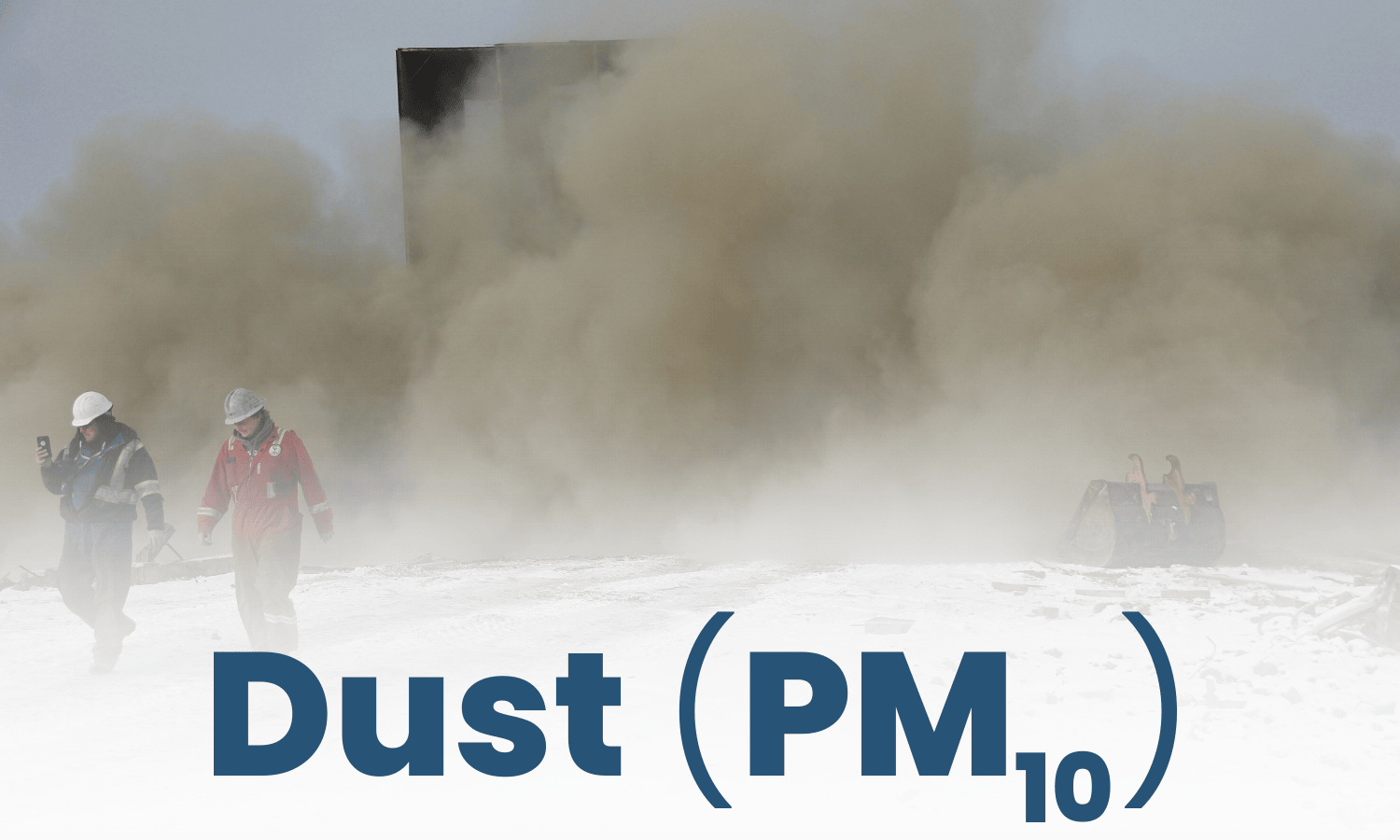The latest in air quality monitoring

Article
February 5, 2026
Air quality measurement series: Dust (PM10)This blog covers coarse particulate matter (PM10) composition, sources, health and environmental effects, exposure guidelines, and why monitoring matters.
Article
Why networked air quality monitoring systems are better than individual or crowdsourced air quality sensorsNetworked air quality monitoring systems provide reliable, standardized data, flexible placement, and more equitable coverage than individual or crowdsourced sensors.
Article
A deep dive into coal dust Explore the health impacts of coal dust and PM10 air pollution, how coal mining and transport contribute to emissions, and how to monitor and reduce exposure.
Article
How does PM10 air pollution affect human health, and what steps can you take to protect yourself?Learn how PM10 air pollution impacts your health, who is most at risk, and what practical steps you can take to reduce your exposure to dust-related air pollution.
Article
Professions with dust-related air pollution: Who is most at risk for PM10 exposure on the job?Which workers face the most exposure to dust air pollution? Explore PM10 risks across industries and how to reduce adverse health impacts.
Article
A review of recent air pollution statistics: Where do we stand going into 2026?A deep dive into the latest air pollution statistics from the AQLI, revealing the regions most at risk and the need for equitable air quality monitoring.
Article
What are the natural sources of dust and PM10 air pollution?Natural events like dust storms, seaspray, pollen, wildfires, and volcanoes contribute significantly to global PM10 air pollution levels. Even though many regulations exclude naturally occurring PM10, these coarse particles can still harm human health and worsen with climate change, making it important to monitor and protect against them.
Article
PM10 emissions in the Mono Basin: A dust air pollution case study Mono Lake’s lowered water levels have exposed its dust-emitting lakebed, creating some of the nation’s highest PM10 air pollution. High winds spread this dust across the Mono Basin, affecting air quality, wildlife, and public health.
Article
PM10 air pollution from mining activities: Monitoring dust for mining operationsMining activities release PM10 dust that degrades air quality, endangers worker and community health, and damages nearby vegetation and water sources. Various engineering and safety measures, including the measurement of air pollution from mining operations, can help reduce exposure.
Article
Air pollution in agricultural areas: Why PM10 monitoring is important for dust management in farming practicesAgriculture contributes to both greenhouse gas and dust (PM10) air pollution emissions, which affect air quality, climate, and crop yields. Monitoring and managing these emissions can help create healthier farming environments.
Article
Dust Emissions from Industrial Applications: Why Monitoring PM10 Air Pollution MattersIndustrial facilities such as metallurgical, mineral, and wood product manufacturers release dust particles (PM10) that affect air quality and public health. Monitoring these emissions helps reduce exposure and protect nearby communities.
News
5 women-driven technologies helping the world’s healthHuman health in buildings: Improving building efficiency to meet climate goals is vital, but human health — mental, emotional and physical — must also be part of planning structures and urban environments.
News
State targets Richmond for air quality improvementBy the end of summer, 100 air quality monitors will be installed throughout Richmond and San Pablo.It’s a stark contrast to the three state-run air monitors that currently serve the area, providing average air quality estimates for the region.
News
Clearing the air in India’s Silicon ValleyIndia, one of the world’s fastest growing major economies, has its own Silicon Valley in the city of Bengaluru. Home to information technology companies and multinationals such as Google, Apple, Intel, IBM, Cisco and Adobe, the city provides careers for over a third of India’s 2.5 million IT professionals.
News
Tackling air pollution — an interview with ClarityAir pollution is a well-known problem that leads to a drastic reduction of quality of life. It does not cause only chronic diseases: according to the recent UN report, air pollution is a cause of between six and seven million premature deaths and an estimated US$5 trillion in welfare losses each year.
News
Low-cost air quality sensors could be coming to Oakland residentsOn a sunny day a week ago, representatives from government agencies, universities, industry and environmental nonprofits gathered at the Oakland Convention Center to talk about low-cost air quality sensors.
News
Discover the 10 winning innovative projects of the Air Quality Experimentation ProgrammeImproving air quality is a major concern for the City of Paris. Mayor Anne Hidalgo and her team have made it a priority since the beginning of their term in 2014. The industrial sector and the research realm are also highly engaged on this issue, helping to develop relevant solutions.
News
UN Rideshare app makes its debut at Asia-Pacific Clean Air WeekA new UN Rideshare mobile application, brainchild of the Bangkok-based UN Office of Information and Communication Technology, will be launched and demonstrated during Clean Air Week, which will take place in Bangkok from 19–23 March.
News
Reducing air pollution with smart designAir pollution is one of the greatest threats to human health worldwide, responsible for millions of premature deaths each year.
News
‘A dream enabler’: Berkeley innovators hold panel on city’s startup cultureBerkeley-based entrepreneurs Vivienne Ming, Andy Schmeder and David Lu discussed startup culture and the stories behind each of their innovations in a panel hosted by the Berkeley Chamber of Commerce, or BCC, on Thursday evening.
News
Startups working to ensure Smart City air is breathableAir quality is a major public health issue. According to a report published in the peer-reviewed general medical journal The Lancet on 20 October, polluted air is the cause of 6.5 million deaths worldwide annually.